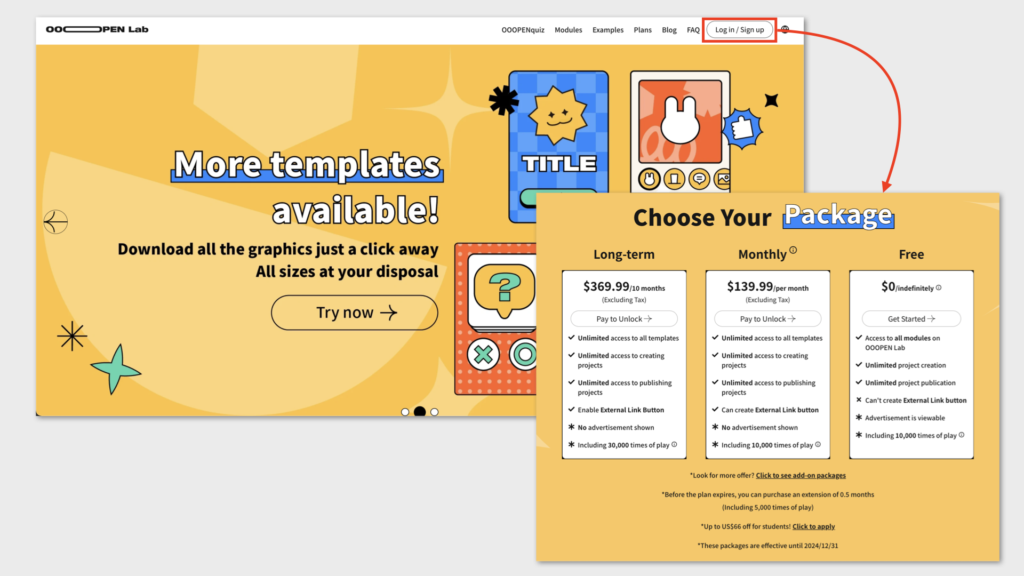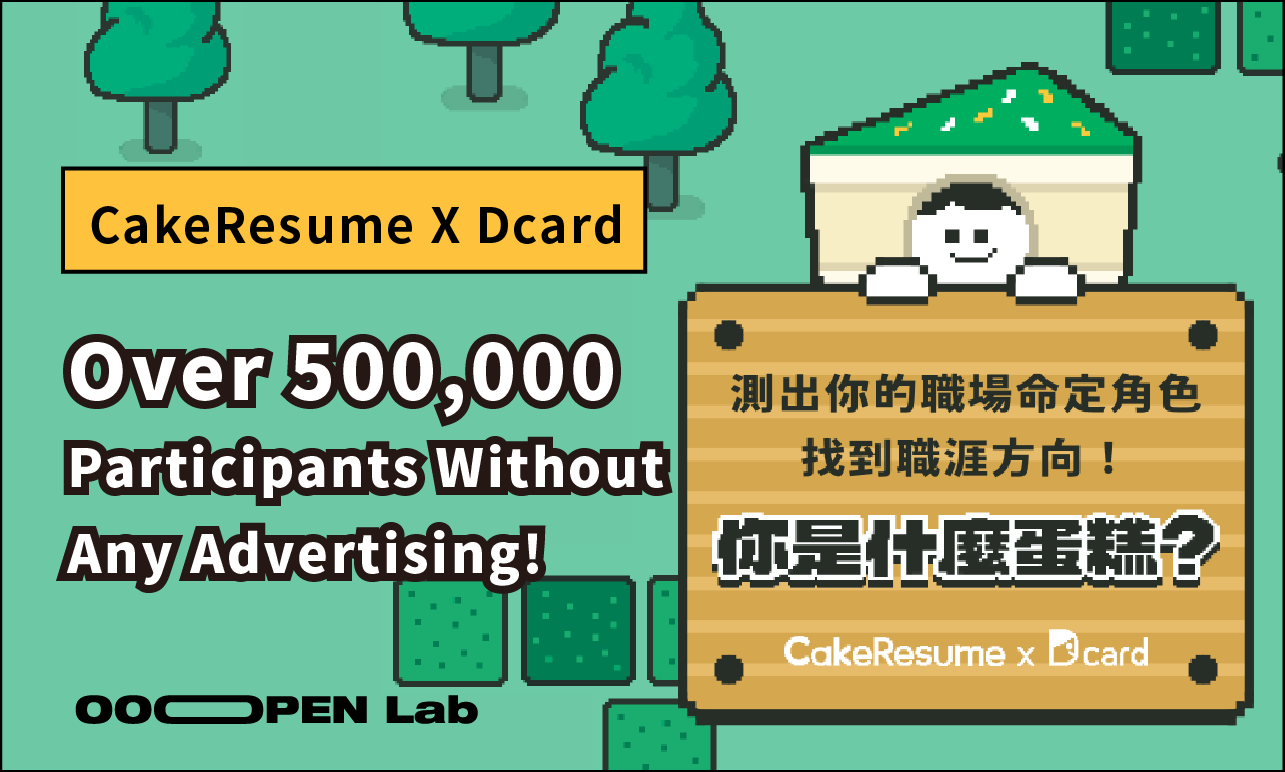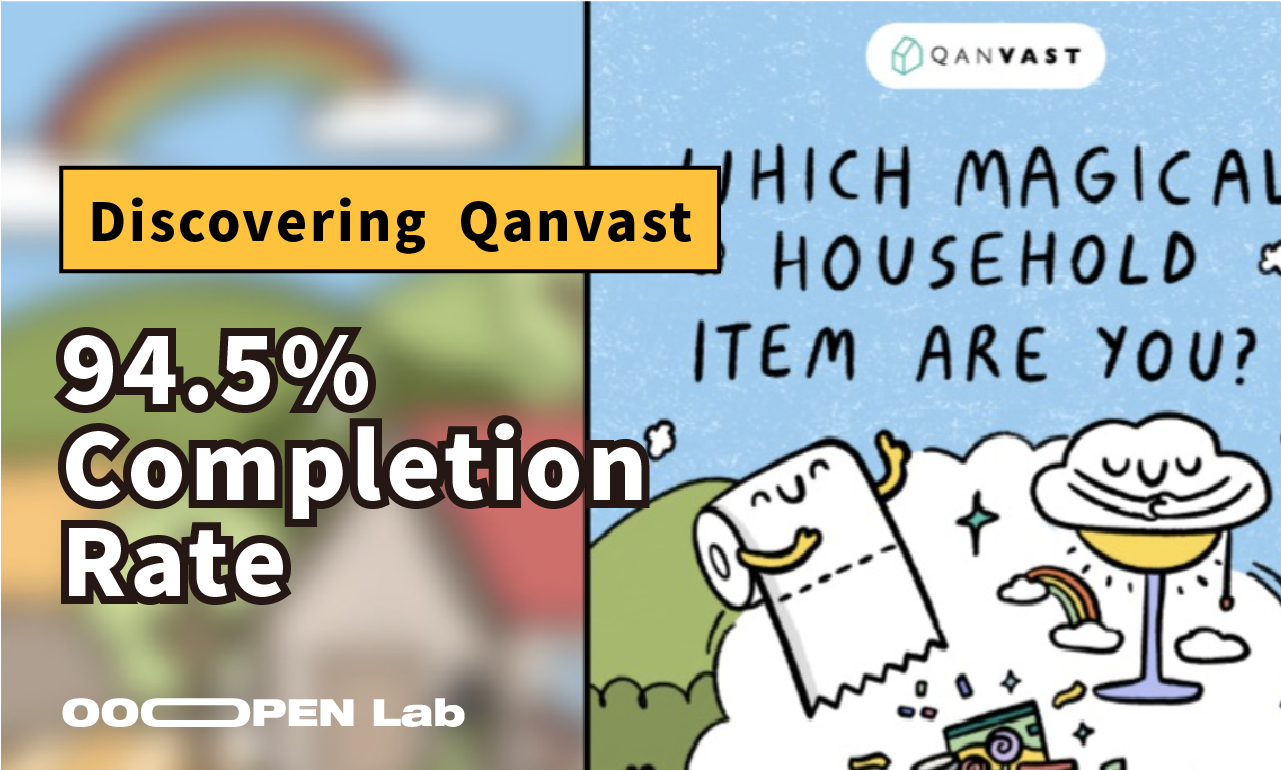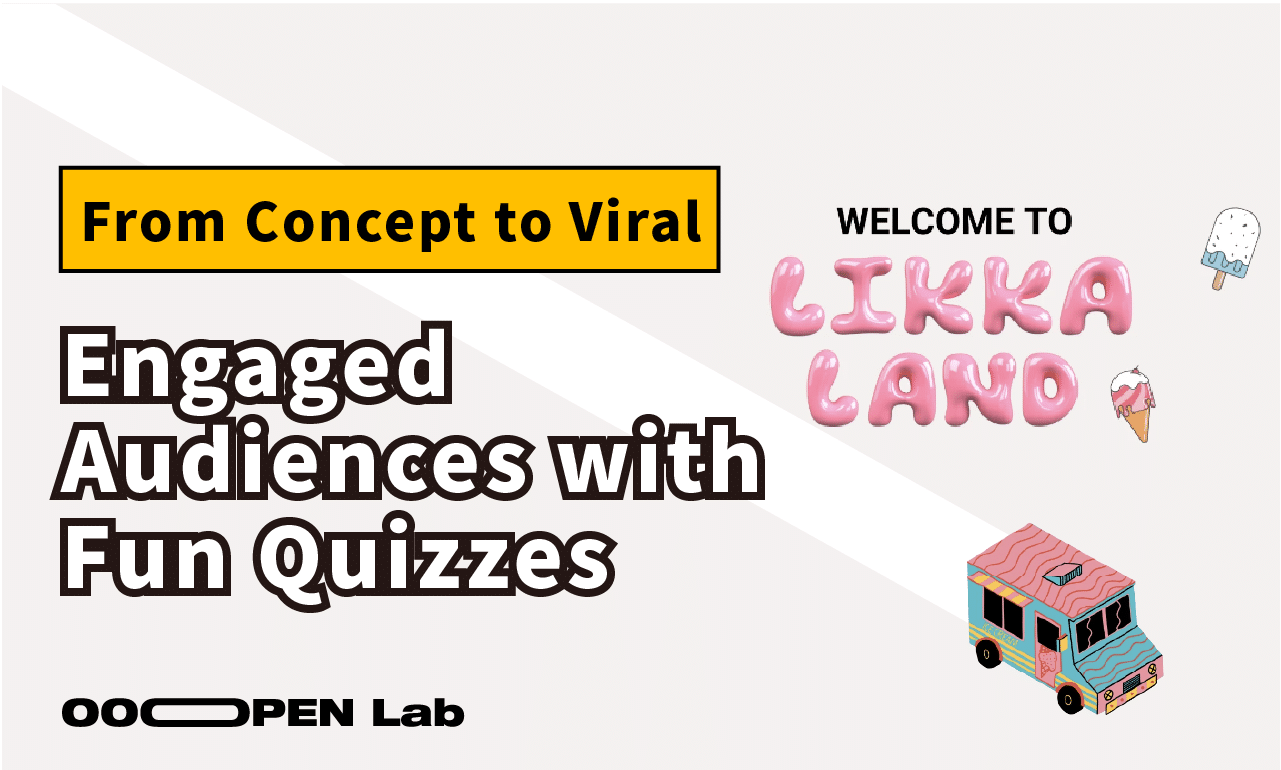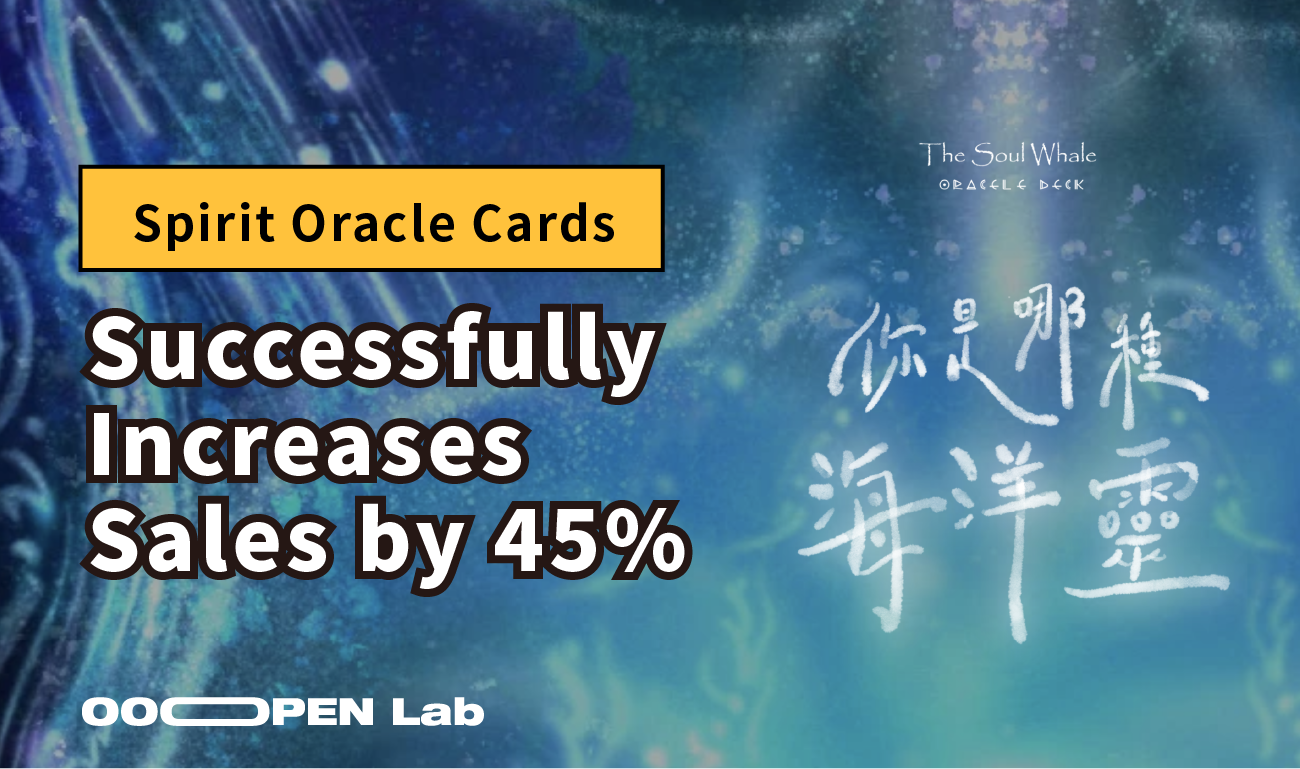The international talent platform CakeResume collaborated with Taiwan’s largest anonymous community, Dcard, to launch the “CakeResume X Dcard|What Cake Are You?” career psychological test during the graduation season in June 2023. This initiative successfully generated 600,000 visits within a week and has now surpassed 500,000 responses! We invited the CakeResume team to share the concept of this project, the reasons for choosing the psychological test module, and further insights into the key factors for the success of the psychological test and their user experiences. If you are looking to leverage psychological tests for marketing, you will certainly gain a lot of inspiration from their experience!
Combining CakeResume’s Brand Positioning and Project Theme to Create an Immersive Test
This test is an online interactive activity designed for the graduation season project “Job Hunting Novice Village.”
The gamified elements of the test align with the “Job Hunting Novice Village” concept, where new graduates entering the workforce face various challenges like starting a new game. “Job Hunting Novice Village” provides tutorials and resources to help them progress from 0 to 1 and complete tasks.
By clicking to start the test, participants enter the “Job Hunting Novice Village” world, completing three major job training stages and answering 12 fun situational questions. The test features Pixel Art game-style visuals and sound effects, making it feel like a fun game.
The test results include six different cake flavors, analyzing the participant’s suitable positions, five key workplace skills, career luck items, and compatible colleagues, helping them understand their traits and suitable career paths in a fun and engaging way.


Gaining Community Favor and Massive Exposure through a Comprehensive Plan
The “What Cake Are You?” test achieved remarkable success from the very first day of its launch, with over 10,000 people completing the test on the first day. Within a week, it attracted 600,000 visits and 400,000 test completions, all without any advertising budget. To date, the test page has accumulated nearly one million visits, with community engagement and user participation far exceeding the team’s expectations! After the cake test went live, many KOLs (Key Opinion Leaders) voluntarily shared it on social media. Numerous media outlets, including CommonWealth Magazine, Yahoo News, Future Commerce, GirlStyle, TVBS, BEAUTY美人圈, and Marie Claire, also wrote and shared articles about it, resulting in significant free brand exposure.

How Does CakeResume Use Psychological Tests to Effectively Improve Communication Efficiency and Reach?
This marketing campaign aims to create effective brand marketing on social media. Therefore, when planning to use “psychological tests” as the main form, the primary considerations were:
1. Can it create a smooth communication logic?
The focus of CakeResume’s brand marketing this year is to make more people aware of the various job openings available on the CakeResume website. Therefore, emphasizing “finding the right job type” in the test is both interesting and effective in achieving a logical and smooth communication.
Additionally, when the test results are revealed, the copy and design can guide users to the CakeResume website, where they can find job categories corresponding to their test results, successfully achieving a traffic redirection effect.
2. Highly Effective Dissemination Mechanism: The Magic of Psychological Tests
We have observed that in recent years, many internet users are very willing to use these personally meaningful “psychological tests” to help with quick self-exploration and understanding. They also like to reveal themselves through test results to their friends, creating higher social media dissemination. Examples include the Korean MBTI 16 personality types test and various online tests launched by numerous Taiwanese brands and organizations like Netflix, the Taipei International Book Exhibition, Pinkoi, Hahow, etc., which have all generated considerable discussion and buzz!
However, to make participants want to take the test and share it, it must be packaged with interesting thematic elements and have a certain degree of reasonableness and logic, so that participants recognize the “accuracy” of the test.
Therefore, we initially selected the “Holland Code (RIASEC) Theory” as the foundation for our test. This theory posits that “a person’s characteristics influence their choice of occupation,” which aligns perfectly with our desired communication logic! We can also efficiently use this existing theoretical model, confidently and creatively extending it for our test’s packaging.
How to Successfully Create High-Traffic Psychological Tests? Key Strategies Observed by CakeResume
Before the Test Goes Live
We researched many tests that went viral on social media, thoroughly analyzing and summarizing numerous “key factors for psychological test success,” hoping to achieve a certain level of success with our first attempt at an online test for CakeResume.
- “Theme and Title” Must Be Clear and Concise to Let Users Know What They Are Testing
For example: “Hahow | Find Out Your Cosmic Resonance Frequency,” “Cultural Travel Companion Recruitment: What Shape Are You?” - “Visual Design” must be attractive, carefully crafted, and eye-catching.
- “Question Design” should be clever, integrating the test questions into a scenario or story. For example: add background music and unique illustrations for each question.
- “Test Result Graphics” should be as interesting and informative as possible, including key elements such as:
- Character Descriptions for Test Results: Use positive language to praise participants and encourage sharing. – Personality Hashtags: Employ fun and descriptive text.
- Hexagonal Charts: Make the visuals more vibrant and engaging with shapes.
- Compatible and Incompatible Matches: Show icons of other test result characters.
- X% of People Are Like You: People love feeling unique.
- Quotes**: Though we had to omit them due to layout constraints.
- Guide Users to Share Test Links on Social Media** to increase reach.
- CTAs (Call to Actions) on the Test Results Page should include:
- Save the image. – Share the image on social media.
- Share the test with friends.
- Take the test again.
- Click to visit the marketing destination.

After the Test Goes Live
Through more meticulous social media promotion planning than ever before, we continued to spread, stack, and expand the reach of the test across various channels after its launch. Our goal is to spread the “What Cake Are You?” test far and wide! Here’s a breakdown of our marketing efforts:
- Designed official IG and FB pinned posts with main visuals, where users can tag 2 friends in the comments to receive the test.
- Promoted through all CakeResume social media accounts: LinkedIn, and both Podcast IG accounts. – Actively invited over 20 KOLs to participate in the test and share it in their stories.
- Continuously shared on the official IG stories:
- Reposted shares from users and KOLs.
- Provided updates on how many people have completed the test to increase engagement.
- Shared the test link in various LINE and Discord communities (inviting the entire CakeResume team to join, greatly enhancing the spread).
- Wrote an article on Dcard.
- Shared in FB groups.
- Continued to include the test in subsequent social media posts.
- Partnered with Dcard for additional promotion.
- Started running social media ads one month after the test launch.

Pros and Cons of Using the OOOPEN Lab Psychological Test Module
When we first wanted to create a psychological test, we were unsure how to design the test webpage and worried it would be a complex and massive project. Fortunately, we discovered “OOOPEN Lab,” a brand created by RE:LAB Information Design Consulting Company. The OOOPEN Lab website and Instagram share many successful client cases, which quickly boosted our confidence in the platform. Here are some pros and cons we experienced while creating a psychological test with OOOPEN Lab:
Pros:
- Very user-friendly; quickly understand the test template structure and logic.
- Excellent customer service with quick and clear responses.
- High cost-performance ratio; flexible options to purchase additional answer quotas, features, and usage months.
- The official social media promotes brand tests, which is very considerate (IG promotion).
- Easy to see various test metrics such as page views, answer counts, and results.
Cons:
- The blocks on the test results page are spaced out and cannot be adjusted.
- No option to establish a “brand domain,” but the “embed in website” advanced feature was later added to embed tests on brand websites.
- When opening the page within an app, clicking “external link” prevents returning to the test results page and redirects to the test start page.
- No “click to download image” button; users need to be guided to long-press to save images.
- If you forget to change “apply this setting to all identical templates” to “yes,” it might unintentionally update everything. However, the OOOPEN Lab team optimized this feature, and it now defaults to “no.”
- Despite these minor issues, we highly recommend using OOOPEN Lab to create psychological tests! It is an excellent tool that can significantly enhance production efficiency.
Sign Up Now and Try All Advanced Features!
Click “Login/Register” in the top right corner to become a “Creator” and enjoy unlimited free access to try out, create, and publish all projects as a free plan user!
The free plan currently offers unlimited trial access with limited features. You can compare it by selecting “Choose a Plan” and clicking “View Full Comparison.” Before the official launch, you can purchase a plan online with a credit card, allowing you to activate your account and gain access to the publishing module within just one minute!
